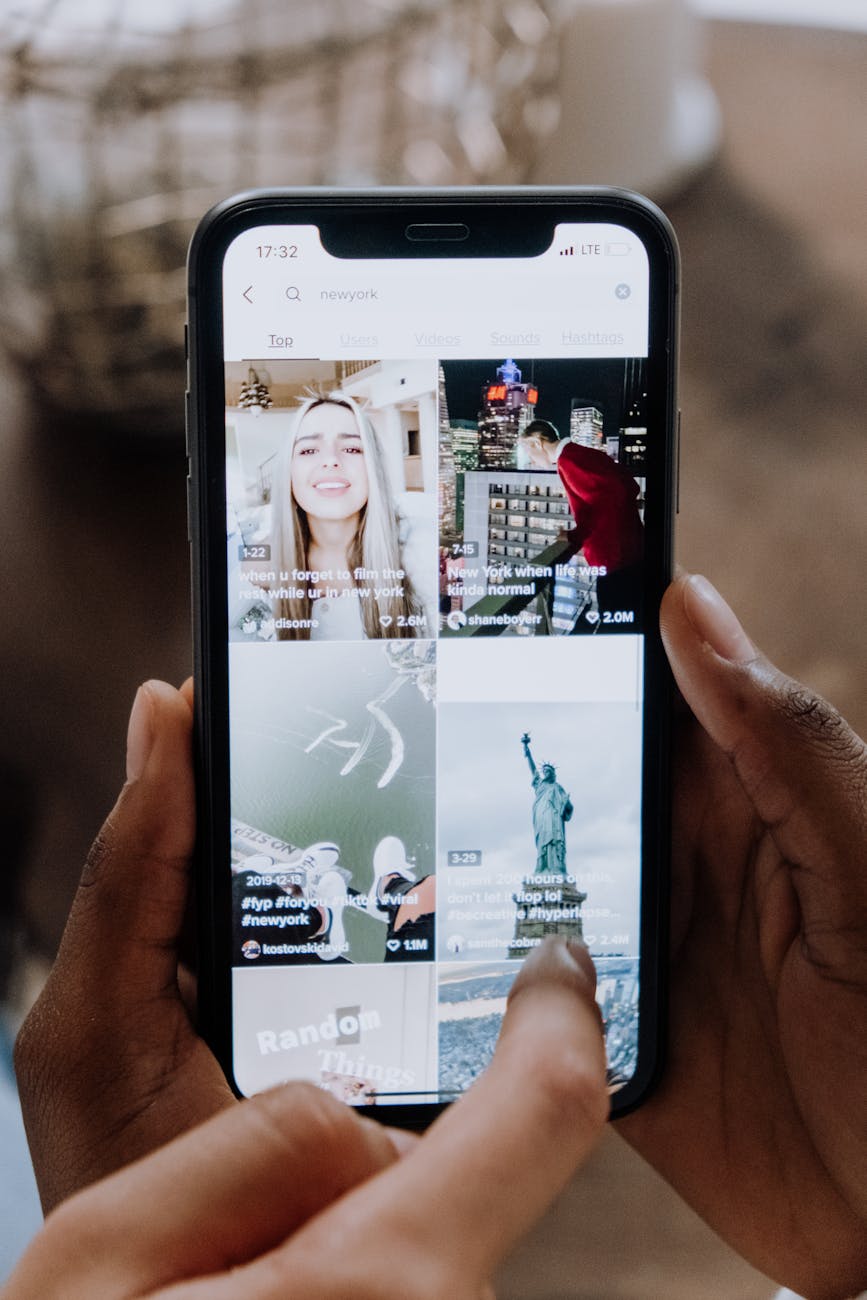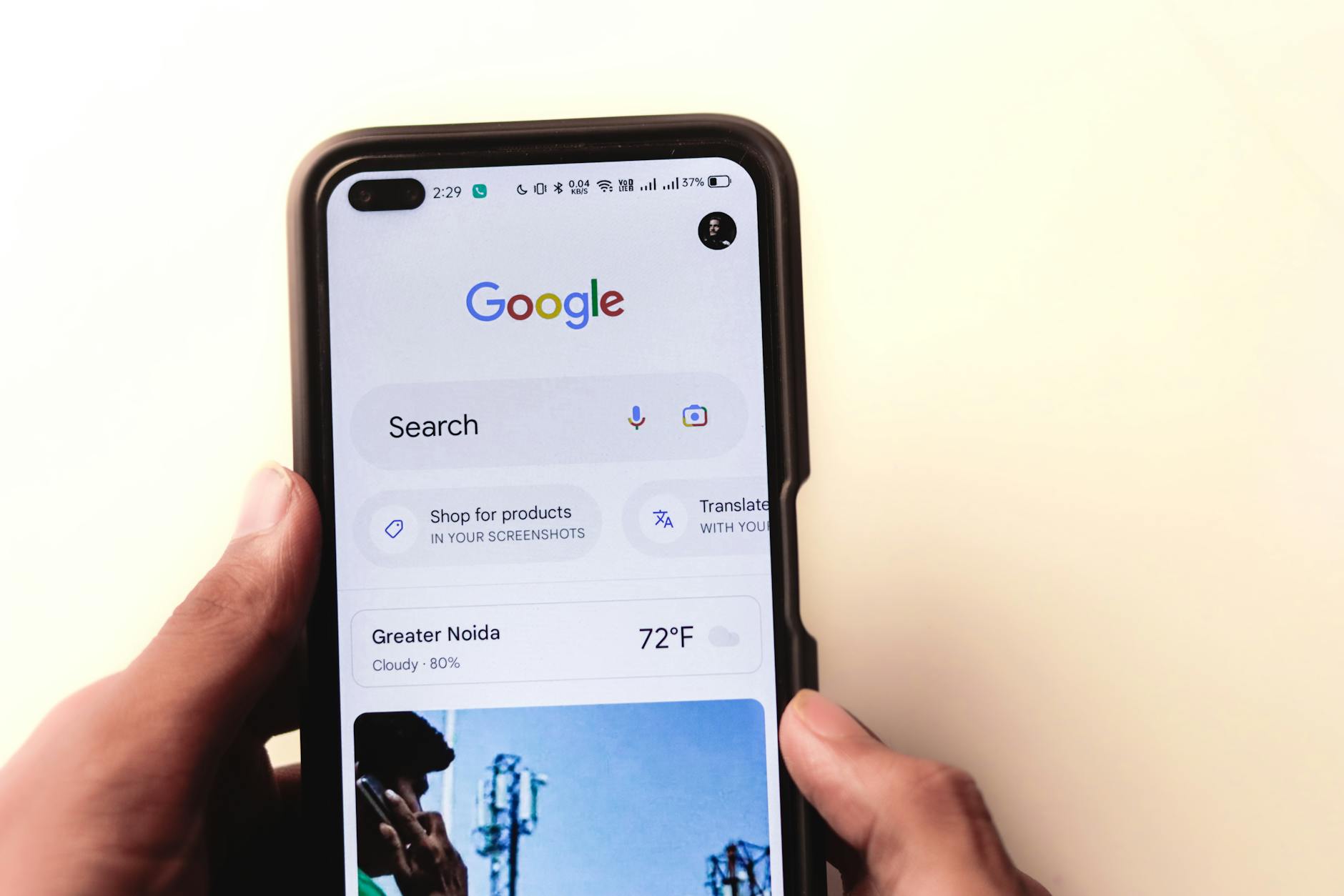Did you know that 76% of marketers keep their SEO and social media strategies completely separate?
The best brands have found something powerful: SEO and social media create twice or maybe even three times more online visibility when they work together. Our clients prove this. Teams that combine these channels beat their competition consistently.
Each tweet, LinkedIn post, or Instagram story gives you a chance to improve your SEO results. Your SEO-optimized content can stimulate your social media engagement too. This creates a feedback loop that makes both channels stronger.
Combining SEO and social media needs more than random posting and wishful thinking. You need a strategy that lines up both channels with your business goals.
This piece will show you how to build this winning combination. You’ll learn to create an integrated strategy and measure your results. Let’s change your digital presence by making SEO and social media work together perfectly.
Understanding the SEO-Social Media Connection
Search engines and social media platforms interact in fascinating ways. Google maintains that social signals don’t directly affect rankings. Yet the digital world changed after the Google leak of 2024 showed how user engagement affects search rankings.
This complex relationship continues to alter the map of digital marketing.
How Search Engines View Social Signals
Social signals and search engines share a complex relationship. Bing openly uses social signals in its ranking algorithm. Google takes a different path. Likes, shares, and comments create indirect effects that can improve your website’s visibility.
The Role of Social Media in Modern SEO
Social media platforms work as powerful content amplifiers. Popular social media posts can send lots of traffic to your site. A Hootsuite study revealed that articles with top social shares saw a 22% boost in SEO results.
Social search has taken interesting turns. Modern platforms employ a social graph—a detailed map of connections and interactions—that improves search abilities. This development explains why Gen Zers now turn to TikTok as their preferred search engine.

Key Metrics That Matter for Both Channels
Several vital metrics connect SEO and social media success:
- Engagement Metrics
- User engagement rates (likes, shares, comments)
- Dwell time and bounce rates
- Click-through rates from social platforms
These metrics work together in powerful ways. To cite an instance, content with high social engagement often sees better click-through rates and longer dwell times. This creates a positive cycle that helps both your social media presence and SEO results.
AI algorithms now study user behavior on social media platforms. This helps search engines judge content relevance and user satisfaction better. AI integration has made the boundary between social media engagement and SEO performance less clear.
Note that social signals might not directly rank in Google’s system, but they boost your digital presence. These platforms amplify your content and extend its reach beyond your usual audience.
Building an Integrated Strategy Framework
Let’s create something amazing together. I know from experience how SEO and social media can change digital marketing results, and I’m eager to share our proven framework with you.
Setting Combined SEO and Social Goals
Success starts when both channels work together through unified goal-setting. Your social media efforts can magnify your SEO results when they line up properly. These objectives deserve your attention:
- Brand Visibility & Authority
- Content Reach & Distribution
- Engagement & Traffic Generation
- Conversion & Lead Generation
- Link Building & Social Signals
Creating Cross-Channel Content Plans
The real magic happens when your content works for both channels at once. Our data shows that using insights from SEO and social media programs to shape content creation produces substantially better results. This method creates a unified brand experience and makes your digital marketing more effective.
Your content strategy should begin with keyword research that covers both channels. Search for trending topics on social media that match your SEO targets. This creates what I call the “content amplification loop” – social sharing boosts SEO visibility, and better SEO visibility leads to more social sharing.
Resource Allocation and Team Structure
Building your dream team requires careful planning. The most successful organizations treat their SEO and social media teams as partners rather than separate units. Cross-channel marketing helps achieve your business’s marketing goals substantially.
This structure works best for an integrated team:
| Role | Primary Focus | Cross-Channel Responsibility |
|---|---|---|
| Content Manager | Strategy Overview | Oversee social campaigns with SEO principles |
| SEO Specialist | Technical Optimization | Monitor social signals impact |
| Social Media Manager | Engagement | Implement SEO-friendly posting |
| Content Creator | Production | Optimize for both channels |
Note that consistency matters on all platforms. Visual cohesion, tone of voice, and content relevancy across channels affect success rates substantially. Your team should establish standards for all social media and blog posts to ensure smooth integration.
This framework has helped businesses achieve remarkable results. Both your social media and SEO strategy should work together to create powerful synergy that stimulates sustainable growth.
Optimizing Content for Dual Impact
Creating content that works well on both social media and search engines resembles conducting an orchestra – each element must play in perfect harmony. Let’s head over to the strategies that make this possible.
Keyword Research for Social Media
Social media keyword research needs a different approach. Our data shows successful brands blend traditional SEO tactics with platform-specific insights. The key elements of social media keyword research include:
- Pain point keywords that address specific challenges
- Job-to-be-done (JTBD) phrases
- Superlative terms (best, top, fastest)
- Conversational search phrases
Gen Z users now turn to social platforms more frequently for search. Recent studies show 60% use Instagram to find products, while 40% prefer TikTok and Instagram over Google for their searches.
Creating SEO-Friendly Social Posts
Optimizing social posts for search requires careful balance. The best approach incorporates SEO elements naturally while keeping users engaged. These strategies have proven effective:
Your first few lines should contain key information and keywords to boost visibility. Alt text added to social media images serves two purposes: better accessibility and improved searchability.
This optimization framework delivers the best results:
| Element | SEO Benefit | Social Benefit |
|---|---|---|
| Keywords | Search visibility | Hashtag relevance |
| Alt text | Image search ranking | Accessibility |
| Descriptions | Searchability | Engagement |
Repurposing Content Across Channels
Content repurposing acts as a powerful lever in your marketing strategy. A single 30-minute interview can generate multiple high-performing assets.
Strategic transformation makes repurposing effective. These approaches yield excellent results:
- Blog posts become carousel posts
- Long-form videos transform into short-form content
- Data-heavy content converts to infographics
- Customer stories adapt to various content formats
Our case study reveals the power of this approach. One brand created over 10 SEO articles from customer stories alone. This shows the strong connection between social media and SEO content.
The goal focuses on working smarter, not harder. Brands using these strategies see better search rankings and social engagement. This creates a feedback loop that amplifies their digital presence.

Leveraging Social Signals for SEO Growth
Social proof has become a powerful force in modern SEO, and I want to show you how we can use it effectively. Our research shows that social signals have a strong correlation with ranking positions. These opportunities are too valuable to ignore.
Building Quality Backlinks Through Social
Social proof goes beyond likes and shares – it builds genuine authority. Users who see your brand regularly on their social feeds will recognize and trust your website in search results. Here’s how we utilize this:
| Social Signal Type | SEO Impact |
|---|---|
| Expert Opinions | Domain Authority Boost |
| User Reviews | Trust Signals |
| Social Shares | Content Reach |
| Brand Mentions | Authority Building |
Increasing Brand Visibility and Authority
Social signals improve site authority by a lot. Our data shows search engines value positive reviews and testimonials published consistently on social platforms. These proven strategies work well:
- Media mentions from credible sources
- Industry achievements and awards
- Crowd consensus through social proof
- Expert endorsements and certifications
Driving Engaged Social Traffic to Your Site
The traffic potential excites me. Social media platforms have evolved into powerful channels that expand your content’s reach. Content shared on social media continues to attract engagement long after publication.
This creates a compound effect. Google recognizes your brand’s relevance and authority when users search for your company after seeing your social content. The results speak for themselves – over 4 billion people now use social media. This translates into countless opportunities to reach ideal customers.
The real difference comes from quality over quantity. Expert opinions build user trust effectively. Displaying certifications from legitimate, unbiased third-party entities creates trust signals that search engines value.
Social media may not directly influence search rankings, but its indirect effects matter. Creating a network effect amplifies both social presence and search visibility through sharing and linking across platforms.
This approach focuses on building genuine connections that naturally enhance your SEO. Users who see your brand regularly on social media will trust your website more in search results. This creates a feedback loop benefiting both channels.
“SEO and social media are two sides of the same coin: visibility. While SEO whispers to search engines, social media shouts to the masses. Master both, and you’ll dominate the digital conversation.”
Measuring Combined Performance
My years of helping brands boost their digital presence taught me something valuable. Success measurement in SEO and social media needs a smart plan. Let me show you the quickest way to track and analyze how both channels work together.
Key Performance Indicators to Track
Success starts with picking the right metrics. Our research shows that 84.9% of social media analytics tool users care most about content performance measurement. About 74.6% want to understand their audience better.
Here’s our proven framework to track cross-channel success:
| Metric Category | Key Indicators | Impact Measurement |
|---|---|---|
| Engagement | Social interactions, Dwell time | User interest level |
| Conversion | Lead generation, Sales | Revenue effect |
| Visibility | Rankings, Social reach | Brand awareness |
| Authority | Backlinks, Social proof | Domain strength |
Tools for Integrated Analytics
Modern analytics tools have made cross-channel tracking more available than ever. Social media analytics platforms now give an explanation of social interactions, audience demographics, post reach, and engagement rates.
Your analytics toolkit should have these key features:
- Live data monitoring and automated reporting
- Cross-platform metrics integration
- Custom dashboard creation
- Performance measurement capabilities
- Historical data analysis
Reporting on Cross-Channel Success
Automated reporting has changed everything about performance tracking. Our data shows that DashThis users can connect their marketing sources and create reports in minutes. This makes complete performance tracking easier than ever.
Both channels matter when measuring ROI. Social media can affect SEO performance by a lot. Higher social engagement usually leads to better search visibility.
Google Analytics (GA4) helps track exact revenue effect through conversion tracking. E-commerce sites need e-commerce tracking events. Lead-based businesses should use dollar values for conversion goals based on past data.
Social signals create fascinating patterns in overall performance. Positive reviews and testimonials on social platforms create fresh content that search engines love. This creates a snowball effect. Users who search for your company after seeing social content tell search engines your brand matters.
Note that tracking KPIs keeps your eyes on real business goals. Numbers mean nothing alone. We look at how they shape your business direction and when you need strategy changes. This method works wonders. Some clients see ROI percentages exceeding 600% by tracking and improving both channels properly.

Future-Proofing Your Strategy
The digital world changes faster than ever, and I’m excited to share ideas that will help you keep up with trends. Recent surveys show that 42% of marketers strongly agree consumers now prefer to find brands on social media rather than traditional search engines. Let’s look at ways to future-proof your SEO and social media strategy.
Emerging Trends in Social Search
People’s ways of finding content online have changed dramatically. Our research shows that 43% of consumers now use social media platforms as their main product discovery tools. This change affects how we handle both SEO and social media marketing.
The current scene has some exciting developments:
- Visual Search Integration
- 9 out of 10 Google Lens results come from mobile-friendly sites
- Social platforms fine-tune algorithms for more accurate, customized results
- Image and video search features grow faster each day
Social graphs have become smarter and changed how content spreads. Platforms now use user connections and interactions to show more relevant search results. I call this the “trust network” effect.
Adapting to Algorithm Changes
It’s worth mentioning that algorithm changes happen often, with major platforms updating about 20 times yearly. The good news? I’ve created a framework that helps brands stay strong through these changes.
| Adaptation Strategy | Implementation Focus | Expected Impact |
|---|---|---|
| User Signal Optimization | Engagement Metrics | Ranking Stability |
| Content Authority | First-hand Experience | Trust Building |
| Technical Alignment | Core Web Vitals | Performance Boost |
Google now relies heavily on user signals to rank content. Their recent antitrust case revealed that user engagement metrics play a key role in their algorithm. We must focus on making users happy more than ever.
Preparing for New Platforms and Features
Social search features are growing in exciting ways. Google’s new AI-powered SERP snippets (Search Generative Experience) won’t hurt your traffic. They summarize content while directing users to the best-ranking sources.
These changes need preparation. Here’s what to focus on:
- Content Authentication
- Show first-hand experiences
- Write real insights instead of generic content
- Use subject matter expert knowledge
- Platform Integration
- Make content ready for visual search
- Add schema markup for better content understanding
- Prepare content for voice search
Local business searches jumped from 90% in 2019 to 98% in 2022. This shows why you need a strong presence on both search and social channels.
AI tools have become common in content creation throughout 2023. Yet here’s something important: while AI helps streamline tasks, human creativity and expertise remain essential. Senior writers are more in demand despite AI’s growth.
Your digital presence depends on creating authentic, experience-based content that strikes a chord with users and algorithms alike. Platforms favor content showing real expertise and genuine user value. This matches Google’s updated EEAT guidelines, which now count first-hand experience as a trust factor.
The best way to future-proof your strategy isn’t just about following trends. Build a foundation that adapts to change while keeping authentic connections with your audience. Focus on real experiences and user engagement to help shape the future, not just prepare for it.
“In the digital ecosystem, SEO plants the seeds, and social media nurtures the growth. Together, they create a lush online presence that attracts and engages your target audience, turning clicks into customers.”
Conclusion
SEO and social media are powerful allies that drive digital marketing success. Strategic integration of these channels creates opportunities to increase visibility and get more people to participate. Social signals may not directly affect rankings, but they help build authority and bring qualified traffic to your website.
This two-channel approach needs optimized content, performance tracking, and quick adaptation to new trends. Brands that use integrated strategies get better results than those who keep these channels separate. The foundations of this success include smart keyword research, content repurposing, and measuring metrics across channels.
Digital marketing keeps evolving and social search grows more crucial each day. You should create authentic, valuable content that serves both your SEO goals and social media audience. Your digital presence will improve when you track metrics regularly and adapt quickly to platform changes.
The key is to provide real value through your content. Your brand will naturally grow its authority and reach in all digital channels if you deliver helpful information while following SEO best practices and social media principles.
FAQs
Q: How can I enhance SEO through social media?
A: To boost your SEO via social media, consider these strategies:
- Develop a robust profile description rich in keywords.
- Include your location, website links, and a clear call-to-action in your profile.
- Highlight your top content using pinned videos and images.
- Conduct keyword and SEO-focused hashtag research for your posts.
- Incorporate ALT text into your social media images and videos.
Q: What does SEO social media optimization entail?
A: Social Media Optimization (SMO) aims to generate web traffic and increase visibility for a business or individual by optimizing social media content. This is achieved by focusing on earning organic links to the content, similar to how SEO focuses on enhancing visibility in search engine results.
Q: What are effective methods to optimize content for SEO?
A: To optimize your content for SEO effectively, follow these guidelines:
- Ensure Google can index and display your page as a user would see it.
- Use clear and descriptive URLs.
- Organize similar content into specific directories to enhance topical relevance.
- Minimize duplicate content across your site.
- Anticipate the search terms your readers might use.
- Avoid using distracting ads.
- Link to relevant and authoritative resources.
Q: How does engaging with influencers benefit SEO and social media strategies?
A: Collaborating with influencers can enhance both your SEO and social media efforts by increasing brand awareness. Influencer marketing accesses the influencer’s existing audience, while SEO increases your website’s visibility on search engines, reaching a wider audience overall.
Navigating the SEO Landscape: A Complete Guide to On-Page and Off-Page Optimization for Maximum Visibility
Start-up Mistakes: Lessons Learned from Successful Entrepreneurs


